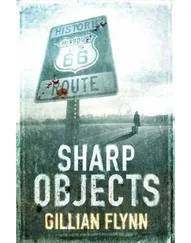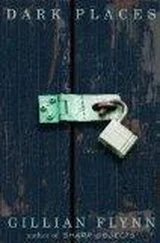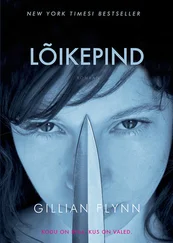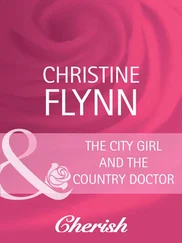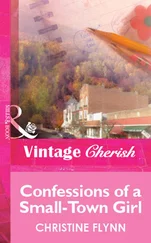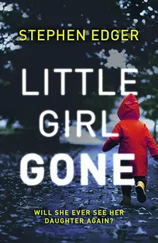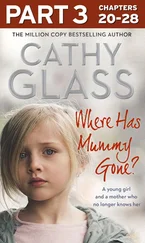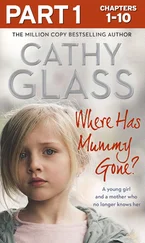But truly, it was a practical decision, a smart business move. Amy and I both needed new careers; this would be mine. She would pick one someday, or not, but in the meantime, here was an income, made possible by the last of Amy’s trust fund. Like the McMansion I rented, the bar featured symbolically in my childhood memories—a place where only grown-ups go, and do whatever grown-ups do. Maybe that’s why I was so insistent on buying it after being stripped of my livelihood. It’s a reminder that I am, after all, an adult, a grown man, a useful human being, even though I lost the career that made me all these things. I won’t make that mistake again: The once plentiful herds of magazine writers would continue to be culled—by the Internet, by the recession, by the American public, who would rather watch TV or play video games or electronically inform friends that, like, rain sucks! But there’s no app for a bourbon buzz on a warm day in a cool, dark bar. The world will always want a drink.
Our bar is a corner bar with a haphazard, patchwork aesthetic. Its best feature is a massive Victorian backbar, dragon heads and angel faces emerging from the oak—an extravagant work of wood in these shitty plastic days. The remainder of the bar is, in fact, shitty, a showcase of the shabbiest design offerings of every decade: an Eisenhower-era linoleum floor, the edges turned up like burnt toast; dubious wood-paneled walls straight from a ’70s home-porn video; halogen floor lamps, an accidental tribute to my 1990s dorm room. The ultimate effect is strangely homey—it looks less like a bar than someone’s benignly neglected fixer-upper. And jovial: We share a parking lot with the local bowling alley, and when our door swings wide, the clatter of strikes applauds the customer’s entrance.
We named the bar The Bar. “People will think we’re ironic instead of creatively bankrupt,” my sister reasoned.
Yes, we thought we were being clever New Yorkers—that the name was a joke no one else would really get, not get like we did. Not meta -get. We pictured the locals scrunching their noses: Why’d you name it The Bar ? But our first customer, a gray-haired woman in bifocals and a pink jogging suit, said, “I like the name. Like in Breakfast at Tiffany’s and Audrey Hepburn’s cat was named Cat.”
We felt much less superior after that, which was a good thing.
I pulled into the parking lot. I waited until a strike erupted from the bowling alley— thank you, thank you, friends —then stepped out of the car. I admired the surroundings, still not bored with the broken-in view: the squatty blond-brick post office across the street (now closed on Saturdays), the unassuming beige office building just down the way (now closed, period). The town wasn’t prosperous, not anymore, not by a long shot. Hell, it wasn’t even original, being one of two Carthage, Missouris—ours is technically North Carthage, which makes it sound like a twin city, although it’s hundreds of miles from the other and the lesser of the two: a quaint little 1950s town that bloated itself into a basic midsize suburb and dubbed it progress. Still, it was where my mom grew up and where she raised me and Go, so it had some history. Mine, at least.
As I walked toward the bar across the concrete-and-weed parking lot, I looked straight down the road and saw the river. That’s what I’ve always loved about our town: We aren’t built on some safe bluff overlooking the Mississippi—we are on the Mississippi. I could walk down the road and step right into the sucker, an easy three-foot drop, and be on my way to Tennessee. Every building downtown bears hand-drawn lines from where the river hit during the Flood of ’61, ’75, ’84, ’93, ’07, ’08, ’11. And so on.
The river wasn’t swollen now, but it was running urgently, in strong ropy currents. Moving apace with the river was a long single-file line of men, eyes aimed at their feet, shoulders tense, walking steadfastly nowhere. As I watched them, one suddenly looked up at me, his face in shadow, an oval blackness. I turned away.
I felt an immediate, intense need to get inside. By the time I’d gone twenty feet, my neck bubbled with sweat. The sun was still an angry eye in the sky. You have been seen .
My gut twisted, and I moved quicker. I needed a drink.
AMY ELLIOTT
JANUARY 8, 2005
DIARY ENTRY
Tra and la! I am smiling a big adopted-orphan smile as I write this. I am embarrassed at how happy I am, like some Technicolor comic of a teenage girl talking on the phone with my hair in a ponytail, the bubble above my head saying: I met a boy!
But I did. This is a technical, empirical truth. I met a boy, a great, gorgeous dude, a funny, cool-ass guy. Let me set the scene, because it deserves setting for posterity (no, please, I’m not that far gone, posterity! feh). But still. It’s not New Year’s, but still very much the new year. It’s winter: early dark, freezing cold.
Carmen, a newish friend—semi-friend, barely friend, the kind of friend you can’t cancel on—has talked me into going out to Brooklyn, to one of her writers’ parties. Now, I like a writer party, I like writers, I am the child of writers, I am a writer. I still love scribbling that word—WRITER—anytime a form, questionnaire, document asks for my occupation. Fine, I write personality quizzes, I don’t write about the Great Issues of the Day, but I think it’s fair to say I am a writer. I’m using this journal to get better: to hone my skills, to collect details and observations. To show don’t tell and all that other writery crap. ( Adopted-orphan smile , I mean, that’s not bad, come on.) But really, I do think my quizzes alone qualify me on at least an honorary basis. Right?
At a party you find yourself surrounded by genuine talented writers, employed at high-profile, respected newspapers and magazines . You merely write quizzes for women’s rags. When someone asks what you do for a living, you:
a) Get embarrassed and say, “I’m just a quiz writer, it’s silly stuff!”
b) Go on the offense: “I’m a writer now, but I’m considering something more challenging and worthwhile—why, what do you do?”
c) Take pride in your accomplishments: “I write personality quizzes using the knowledge gleaned from my master’s degree in psychology—oh, and fun fact: I am the inspiration for a beloved children’s-book series, I’m sure you know it, Amazing Amy? Yeah, so suck it, snobdouche!
Answer: C, totally C
Anyway, the party is being thrown by one of Carmen’s good friends who writes about movies for a movie magazine, and is very funny, according to Carmen. I worry for a second that she wants to set us up: I am not interested in being set up. I need to be ambushed, caught unawares, like some sort of feral love-jackal. I’m too self-conscious otherwise. I feel myself trying to be charming, and then I realize I’m obviously trying to be charming, and then I try to be even more charming to make up for the fake charm, and then I’ve basically turned into Liza Minnelli: I’m dancing in tights and sequins, begging you to love me. There’s a bowler and jazz hands and lots of teeth.
But no, I realize, as Carmen gushes on about her friend: She likes him. Good.
We climb three flights of warped stairs and walk into a whoosh of body heat and writerness: many black-framed glasses and mops of hair; faux western shirts and heathery turtlenecks; black wool pea-coats flopped all across the couch, puddling to the floor; a German poster for The Getaway ( Ihre Chance war gleich Null! ) covering one paint-cracked wall. Franz Ferdinand on the stereo: “Take Me Out.”
Читать дальше

